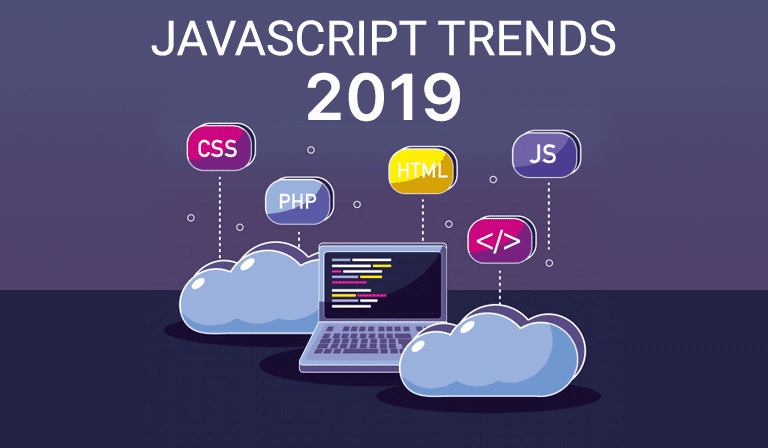HTML Code uses static information for communication. Web Programmers used to hard code HTML to show information to users. There were only static web pages that used to exist. This transformation occurred prior to the emergence of JavaScript. With its invention, JS brought dynamic interaction among web pages. This marked a boom in the creation of web pages that could communicate with the user dynamically.
JavaScript brought modern UI designing, user interaction and user data validation to the table. This sparked the development of modern web applications. These web applications had improved user interface and added advanced user data validation techniques.
Even today, numerous modern online applications continue to depend on JavaScript as their fundamental building block. This article explores the reasons behind the widespread use of JavaScript as the primary language for online programming. Let us talk about the benefits that JavaScript brings to modern web development.
Features of JavaScript –
- Any web programmer can reduce the server interaction between modern web browsers and servers using JavaScript. JavaScript validates user data.
- You can alert the user without making a journey back to the server if he has forgotten to enter a specific piece of information.
- JavaScript speeds out Front End Development and marks a hallmark in the creation of modern web applications.
- JavaScript is a Compile independent language. The web browser’s code generates an instantaneous output without the need for a compiler.
- Event-driven programming languages like JavaScript are crucial for validating user input and executing pre-determined actions in response to it.
- It is easy to extend a certain functionality of a webpage using JavaScript. JavaScript is the language to use if you want to add a specific functionality to a webpage.
- JavaScript is a platform-independent language.
- You can utilize JavaScript’s capability on your web pages by using one of the many modern browsers that support it.
- JavaScript, widely used in web application development, serves as the foundation for numerous existing frameworks.
The text focuses on the modern-day frameworks that are built with JavaScript as their core.
Popular JavaScript Frameworks –
VueJS:
- Vue.JS is a JavaScript framework with various tools for building user interfaces.
- This framework’s popularity can be attributed to its size. It is just over 18 KB in size.
- This framework is simple and easy to understand, there can be small and large templates created based on user functionality.
- This framework has reusable templates which save a lot of time. This enables UI developers to easily focus on other aspects of UI integration.
- This framework’s straightforward structure is to blame for everything.
- Vue.js has several plugins and tools that make the coding and development work easier and fast-paced.
- This framework is mainly used for creating functional and single-page applications.
- This tool is utilized in the creation of program user interfaces, demonstrating its versatility in software design.
Also Read: Top Web App Ideas for Startup Business
ReactJS:
- FaceBook developed ReactJS in coordination with individual developers and organizations around the world.
- Developers of varying skill levels find React accessible and understandable, attributing its popularity to its ease of use and intuitive nature.
- The component-based approach, richly defined lifecycle, and the use of plain JavaScript make it very easy to grasp for the average web programmer.
- React Native allows developers to build applications for iOS, Android, and the web simultaneously, showcasing its cross-platform capabilities and streamlining the development process.
- React allows developers to create diverse front-end and single-page applications, showcasing its flexibility and scalability as a versatile JavaScript library.
- React offers a range of plugins and tools that can be used to enhance the functionality of the framework.
- React JS allows developers to create cross-platform applications for iOS and Android using a unified code base, demonstrating its versatility in inefficient app development.
AngularJS:
- Google developed the Angular JS framework.
- Angular is an MVC structure that enables web programmers to create individual models, views, and controller objects for single-page web applications.
- Angular provides an MVC or model view controller structure to developers and programmers who want to use angular for creating various applications.
- Google’s extensive support ensures consistent, timely, and reliable updates, continuously improving its features and capabilities.
NodeJS:
- Node JS is a JS runtime and framework library.
- Using NodeJs the development of web applications is simplified.
- It is a server-side development language. This supports the development of networking applications.
- It is an asynchronous and event-driven framework.
- Node JS speeds up the development and deployment.
- Node JS is a powerful tool for developing scalable single-threaded applications. There is no buffering involved. These are some of the highlights of the framework.
- Node JS is an awesome framework for any kind of server-side web development application.
- It works with various tools and plugins to extend its functionality.
- This framework is designed for efficient web development for server applications and is optimized for scalability.
GraphQL:
- GraphQL is a JavaScript-based framework.
- GraphQL is a query language designed for creating query APIs.
- GraphQL is a powerful tool that can create various graphs and charts that serve as conceptual illustrations for slideshows and presentations.
Related: What is the difference between Java and JavaScript
Conclusion
We have now seen the features that JavaScript has to offer. These features enable it to dominate the web development industry. JavaScript has become the de-facto language for creating contemporary web apps very quickly.
If you’re looking to hire JavaScript developers for any kind of web development work. You’re at the right place.
Simply get in touch with us. We will assist you in building modern web applications that will solve your problems.
Author
-

Sagar Nagda is the Founder and Owner of Nimap Infotech, a leading IT outsourcing and project management company specializing in web and mobile app development. With an MBA from Bocconi University, Italy, and a Digital Marketing specialization from UCLA, Sagar blends business acumen with digital expertise. He has organically scaled Nimap Infotech, serving 500+ clients with over 1200 projects delivered.
View all posts








